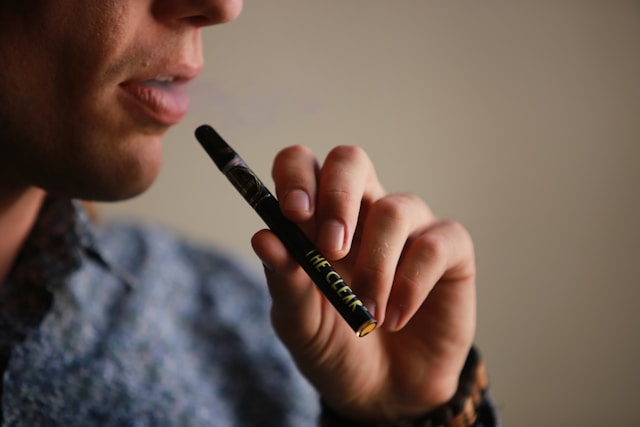Typhoo Tea, a 120-year-old British icon, is saved from administration by Supreme, the e-cigarette company, in a £10 million acquisition.
In a surprising turn of events, Typhoo Tea, one of Britain’s most recognised tea brands, has been saved from the brink of collapse by Supreme, a vape manufacturer. The Manchester-based company, best known for its e-cigarette brand 88Vape, has acquired the struggling tea giant for £10 million. The acquisition follows Typhoo’s fall into administration last month after facing a sharp decline in sales and mounting debts.
Typhoo, which has been part of the British tea-drinking culture for over a century, is now in the hands of a company that, until now, had focused on nicotine products and wellness items like gym supplements and multivitamins. Supreme’s decision to buy the brand is a move that aims to preserve Typhoo’s legacy while attempting to revamp its fortunes in a shifting marketplace.
Embed from Getty ImagesFounded in 1903, Typhoo built a strong following in the 1980s, aided by memorable advertisements featuring celebrities like Cilla Black and Frankie Howerd. The iconic slogan, “You only get an ‘oo’ with Typhoo,” was etched into the memory of generations of tea drinkers. Despite such cultural prominence, the brand has struggled in recent years, with its sales dropping sharply. According to its most recent financial report, Typhoo’s pre-tax losses soared from £9.6 million to £38 million, and sales tumbled from £33.7 million to £25.3 million. This decline, compounded by rising competition from coffee, soft drinks, and herbal teas, led to Typhoo’s unfortunate entry into administration.
Supreme’s CEO, Sandy Chadha, expressed that the acquisition of Typhoo was not just a business decision but one driven by a personal attachment to the brand. He described Typhoo as “an iconic brand” with an enduring presence in British culture, and his company is committed to revitalising it in what he describes as “challenging market conditions.”
“We believe Typhoo can thrive with the right strategy,” Chadha said in a statement. “The decision to purchase Typhoo aligns with our vision to expand into new sectors while maintaining our focus on British heritage.” Supreme, which also distributes products to major UK retailers such as Tesco, Sainsbury’s, and Poundland, intends to focus on both restoring profitability and tapping into new markets that align with its existing wellness product lines.
Analysts see Supreme’s acquisition as a strategic move, one that could prove lucrative despite the challenges. Susannah Streeter, an analyst at Hargreaves Lansdown, noted that Supreme had secured a bargain by purchasing Typhoo out of administration. She predicted that the company would look for efficiencies to reduce costs and could potentially reinvigorate Typhoo by tying it into its growing wellness and supplements business.
“The combination of Typhoo’s loyal customer base and Supreme’s ability to drive efficiencies in the business gives it a strong foundation to succeed,” Streeter said.
Typhoo’s latest woes were exacerbated by additional costs incurred following a break-in at its Wirral plant. These, combined with the brand’s inability to adapt to shifting consumer preferences, led to its downfall. Typhoo has also faced competition from supermarket own-brand tea lines, which have chipped away at the market share of established players like Typhoo, PG Tips, and Tetley.
Despite these challenges, the Typhoo brand remains beloved by many, especially in the UK, where tea drinking remains a daily ritual for millions. Typhoo’s new owners believe there is still significant potential to tap into the wellness trend, with tea positioned as a healthy beverage option. By aligning the brand with Supreme’s other offerings, such as health supplements and wellness products, they hope to bring new life to Typhoo in a rapidly changing market.
The sale also reflects a broader trend within the tea industry, where traditional brands are battling against a wave of competition from new-age drinks like kombucha and iced teas, along with the rising popularity of coffee. While Typhoo may no longer have the same cultural ubiquity it once did, it still holds a place in the hearts of many British tea drinkers.
Supreme’s acquisition of Typhoo Tea is a calculated risk that could potentially breathe new life into the historic brand. Whether or not Supreme can turn the brand’s fortunes around will depend on how effectively they manage to restructure the business, adapt to modern consumer demands, and capitalise on the health and wellness trend. Only time will tell if Typhoo can once again claim its place among the top tea brands in the UK.
